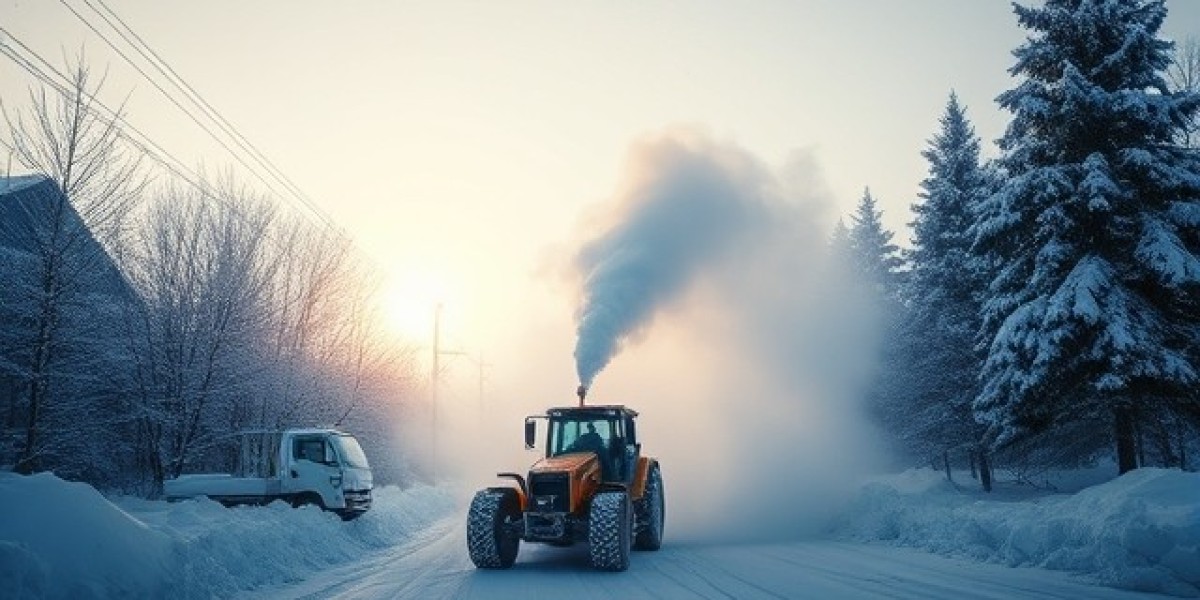Winter brings with it the beautiful sight of snow-covered landscapes, but it also presents the challenge of snow removal. Unfortunately, many traditional snow removal methods introduce harmful chemicals into the environment, which can disrupt ecosystems and damage habitats. However, eco-friendly snow removal techniques offer a sustainable alternative, protecting not only your home but also the environment. By choosing environmentally responsible methods, you can reduce your ecological footprint while ensuring safety and convenience during winter months.
Eco-Friendly Snow Removal Techniques
Shoveling and Snow Blowers
Shoveling is a straightforward and cost-effective way to clear snow without relying on fuel or electricity. While it requires physical effort, it eliminates the need for machinery that can harm the environment. For larger areas, snow blowers are a popular choice. While gas-powered blowers can emit pollutants, electric models offer an eco-friendly alternative.
Benefits and Tips
- Efficiency: Shoveling allows for precise snow removal in targeted areas, minimizing wasted effort and energy.
- Safety: By avoiding the use of machinery, you reduce the risk of accidents or injuries caused by moving parts.
- Community Bonding: Shoveling often encourages neighborly interaction, fostering a sense of community as everyone works to clear driveways and sidewalks.
- Health: Regular shoveling is a great way to stay active during the winter months, offering a low-cost workout.
Electric Snow Blowers: Pros and Cons
Electric snow blowers are an excellent alternative to gas-powered models for those seeking a more environmentally friendly solution.
Pros:
- Emit no harmful pollutants, unlike gas-powered blowers.
- Quieter operation, reducing noise pollution.
- More affordable and easier to maintain.
- Some models have detachable parts for easier storage.
Cons:
- Limited by cord length or battery life, which may restrict usage in larger areas.
- Not as effective on uneven terrain or densely packed snow.
- Batteries may need recharging frequently during heavy snowfalls.
Using Sand and Gravel for Traction
One of the best eco-friendly alternatives to chemical de-icers is the use of sand and gravel. These materials improve traction on icy surfaces without introducing harmful chemicals that can damage your lawn, plants, or pets.
Advantages of Sand and Gravel over Salt
- Surface Protection: Sand and gravel are gentler on concrete, metal, and other surfaces than traditional salt-based de-icers.
- Cost-Effective: Both materials are typically cheaper than chemical alternatives.
- Prevention of Erosion: When used on hillsides or slopes, sand and gravel can help prevent soil erosion.
- Reduced Chemical Exposure: Sand and gravel do not introduce harmful chemicals to your environment, ensuring safety for plants, animals, and groundwater.
Tips for Maximum Effectiveness
- Clear surfaces of snow before applying sand or gravel to maximize traction.
- Focus on areas prone to ice, such as entrances, exits, and sharp turns.
- Apply a uniform layer for even coverage and enhanced safety.
- Spread sand and gravel during or before snowstorms to reduce ice formation.
- Clean up excess material after the ice has melted to prevent clogging drainage systems and to reuse the materials.
Heated Driveways and Walkways: A High-Tech Solution
For those seeking a more modern, automated solution, heated driveway and walkway systems offer a chemical-free method for keeping pathways clear of snow and ice.
How Heated Systems Work
There are three primary types of heated driveway systems: radiant heat, electric resistance, and hydronic systems. Radiant heating uses sensors and controls to target specific areas, while electric and hydronic systems work by generating heat through electric mats or circulating warm water through tubing, respectively.
Energy Efficiency and Installation Considerations
To get the most out of a heated system, choose energy-efficient models and consider installing programmable thermostats. These systems can be set to operate only when necessary, reducing energy consumption. Hiring professional installers ensures that the system is set up correctly, with optimal placement of heating elements for maximum efficiency.
Sustainable De-icing Products
When you need to melt ice quickly, many eco-friendly de-icing products are available as alternatives to traditional, chemical-based ice melts.
Eco-Friendly Ice Melt Alternatives
- Calcium Magnesium Acetate (CMA): This eco-friendly de-icer is less corrosive than salt and works well in low temperatures. It’s ideal for surfaces that could be damaged by harsh chemicals.
- Beet Juice: Beet juice is another sustainable option for ice removal. The sugars in beet juice lower the freezing point of water, reducing the need for large amounts of salt and minimizing corrosion.
- Corn-Based De-icers: Derived from natural sources, these de-icers are biodegradable and pose no harm to the environment.
Benefits of Using Natural De-icers
- Reduced Environmental Impact: Natural de-icers are biodegradable and do not introduce harmful chemicals into the ecosystem, helping preserve soil and water quality.
- Pet and Plant Safety: Unlike traditional de-icers, natural products are safe for pets if ingested and won’t harm plants or lawns.
Conclusion
Eco-friendly snow removal methods not only protect your home and health but also contribute to a more sustainable environment. Whether you choose to shovel, use an electric snow blower, or implement heated systems, you can minimize your environmental impact. Additionally, switching to natural de-icing products like sand, gravel, beet juice, or calcium magnesium acetate ensures safety for pets, plants, and the ecosystem as a whole. By prioritizing these methods, you’re not just clearing snow—you’re taking an active role in preserving the environment for future generations.
Christmas stickers for Cricut
father's day gifts made with cricut
cricut inspirational quotes
cricut black friday sale
Valentine’s Day Cricut stickers
cricut animal designs








